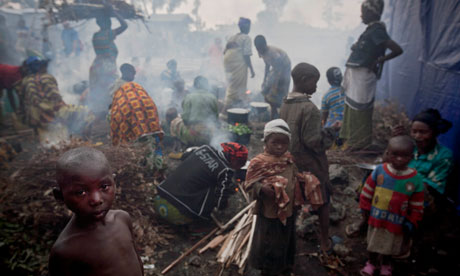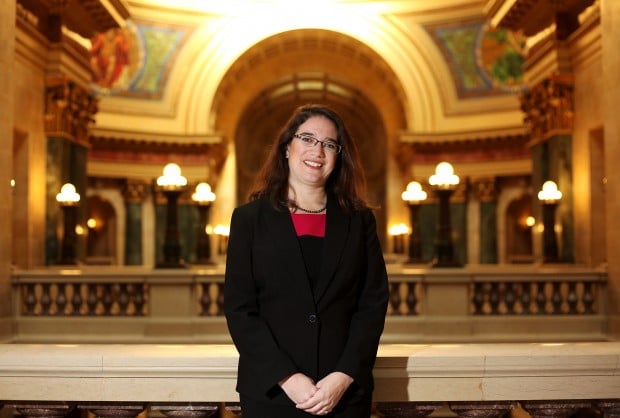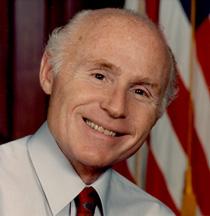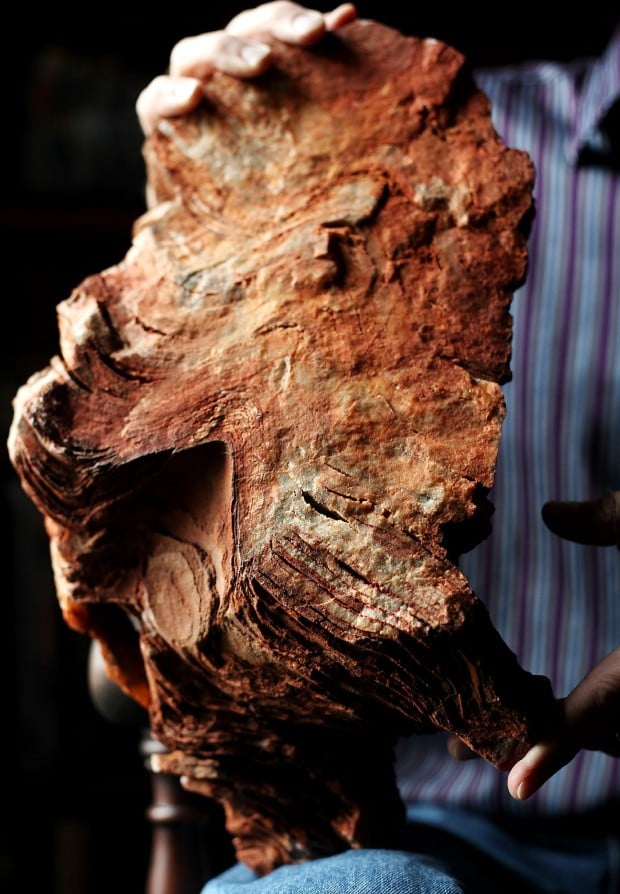undeterred
undeterred's JournalWars push number of internally displaced people to record levels
Crises in Syria and Democratic Republic of the Congo in 2012 help push total figure of people displaced worldwide to 28 millionMark Tran
guardian.co.uk, Monday 29 April 2013 04.00 EDT
Wars in Syria and the Democratic Republic of the Congo (DRC) pushed the number of people internally displaced by armed conflict, violence and human rights violations to 28.8 million last year, the highest figure recorded by the Internal Displacement Monitoring Centre (IDMC) in Geneva. More than 6.5 million people were newly displaced within their own countries in 2012, almost twice as many as the year before, IDMC said in its annual report. Since these people have not crossed borders, they are not refugees and do not benefit from international protection.
The situation in Syria is particularly critical, as it is the world's largest and fastest evolving crisis in terms of new displacements. The number of Syrian internally displaced persons (IDPs) is now more than 3 million, of which 2.4 million were displaced last year. "The crisis is in its third year and the escalation has gone beyond a tipping point," said Clare Spurrell, an IDMC spokeswoman. "Humanitarians can't save Syria, it has to be the politicians … what you are seeing are people who are utterly exhausted. The internally displaced are completely reliant on others, but host communities are themselves suffering from a lack of food, and diseases are breaking out." The UN high commissioner for refugees, António Guterres, has described the Syrian civil war as the worst humanitarian disaster since the end of the cold war, and more brutal and destructive than the conflicts in Iraq and Afghanistan. Until the conflict in Syria is resolved, internal displacement will continue to accelerate, said the IDMC, pointing out that this phenomenon has been seen in other countries with drawn-out conflicts.
Colombia has the largest number of IDPs in the world, followed by Syria and the DRC, which has the third largest IDP population. The region with the largest number of IDPs last year was sub-Saharan Africa, where there were 10.4 million IDPs by the end of 2012, almost a third of the world's internally displaced population. About a million people fled their homes in DRC as a result of attacks from the rebel group M23. In November, 140,000 people fled the North Kivu capital of Goma in a single week as M23 forces entered the city. Conflict in Mali and increased violence in Nigeria from the radical Islamist group Boko Haram also caused large new displacements.
The report suggests that while a resolution to the conflict, particularly in Syria, is critical to dealing with an internal displacement crisis, so too is bridging the gap between emergency response and development. "Ninety percent of the countries monitored by IDMC have IDPs living in protracted displacement, often for decades, while second and third generations are born into displacement,'' said Kate Halff, director of IDMC. She added: ''Governments are responsible for finding long-term solutions for their displaced citizens. However, they can only be realised when the governments and the international community recognise that people forced from their homes require not only a humanitarian response at the height of a crisis, but sustained engagement until a lasting solution is achieved."
more at http://www.guardian.co.uk/global-development/2013/apr/29/record-levels-internally-displaced-people

Families displaced by recent fighting between M23 rebels and Congolese government soldiers cook in the rain at Don Bosco Orphanage in Goma, Democratic Republic of the Congo, in November 2012. Photograph: Kate Holt/Oxfam
Combating Techís Conflict Minerals With Disclosure
APRIL 15, 2013, 12:05 AM By QUENTIN HARDY

Some of our most advanced technology products have helped finance the deadliest conflicts of our time. Perhaps, if tech companies change some of their habits, that can change. An essential part of most cellphones is the mineral tantalite, which is frequently obtained from the Democratic Republic of Congo under murky circumstances. Tin, tungsten and gold also finance armed groups in Congo on their way to our laptops and tablets. Hewlett-Packard announced on Monday that it is publishing a list of 195 ore smelters, located around the world, that are identified with the minerals inside the company’s products. Within about two years, the company says, it wants its parts suppliers, which buy from these smelters, to make sure its minerals were not obtained from conflict zones.
“We believe the upshot of this is, over time, to lower violence and repression,” said Tony Prophet, who runs the global supply chain for H.P.’s personal systems group. “The smelters are the chokepoint. Once you locate them, you can start to pressure them to set a standard.” While H.P. may be as much as four steps away from the smelters in the supply chain, Mr. Prophet said, as a major purchaser it can still compel good behavior.
In August, the Securities and Exchange Commission also adopted a rule requiring all publicly traded companies to disclose their use of certain conflict minerals beginning next year, although that rule is facing a court challenge. The issue illuminates a chaotic underside to the clean orderliness of high-tech products. Over the last 15 years, some nine nation’s armies, and perhaps 15 or more armed groups, have fought in Congo. The body count for the region’s wars is estimated to be over five million, making it the world’s deadliest conflict since World War II.
This coincides with the rise in popularity of mobile devices, which has increased demands for minerals found in Congo. That, in turn, attracts warlords. Despite all the killing, supplies have been stable. The minerals, it turns out, are aggregated through a series of middlemen, much the way illicit drugs are gathered from small-scale growers.
http://bits.blogs.nytimes.com/2013/04/15/combating-techs-conflict-minerals-with-disclosure/
Petition to Obama for humanitarian aid to CAR
CAR is Central African Republic - its the poorest country in Africa - one of the poorest countries in the world. Hardly anyone has every heard of it and it rarely makes the news.
Its on the edge of the news now because there is an uprising going on and rebels are approaching the Capital city Bangui. Citizens are fleeing the country in fear for their lives. In previous conflicts women have been viciously raped, homes burned, and people have starved to death in the jungle.
I posted about it in LBN: http://www.democraticunderground.com/1014350269
I was pleased to read this morning that the US does have Special Forces in CAR helping local forces try to track down the Lord's Resistance Army, a rebel group which has killed thousands of civilians across four nations.
http://www.reuters.com/article/2012/12/30/car-rebels-idUSL5E8NU1M320121230
There is virtually no medical care in this country and many people will die as this rebellion takes place.
I started a petition to President Obama to increase humanitarian aid for the 5 million people of CAR.
Will you sign it? You need a White House account. http://wh.gov/QJS7
Thank you.
Central African Republicís neighbors agree to send military contingent to troubled country
Source: The Washington Post
Updated: Friday, December 28, 6:21 PM
BANGUI, Central African Republic — Officials from Central African Republic’s neighbors say they have agreed to dispatch a contingent of soldiers to intervene in the troubled country.
Representatives from the 10-nation Economic Community of Central African States meeting in Gabon, though, did not specify how many troops they could contribute.
President Francois Bozize had pleaded for international help Thursday as fears grew that the rebels would attack the capital of 600,000 next.
Former colonial power France already has said that its forces in the country are there to protect French interests and not Bozize’s government.
Read more: http://www.washingtonpost.com/world/europe/central-african-republic-calls-for-foreign-help-fighting-rebels-but-no-sign-of-major-help/2012/12/27/abbba37c-508f-11e2-835b-02f92c0daa43_story.html
The US and other embassies have already evacuated their diplomatic staff... this is going to be a bloodbath for the African people who cannot leave the country.
From protesting to legislating: Two who marched at WI Capitol set to take office
DEE J. HALL | Wisconsin State Journal | dhall@madison.com | 608-252-6132
In 2011, Melissa Sargent was among the most diehard demonstrators at the Capitol. For 50 days straight, Sargent, often accompanied by some or all of her four children, protested the policies of Gov. Scott Walker and the new Republican majority in the Legislature, whose moves to gut collective bargaining for public employees sparked mass demonstrations.
When officials locked the Capitol, Sargent said she and the kids, including the baby, Trystan, marched outside in the cold. And when the Capitol police ordered her three older boys — Devin, Bailey and Keanan — to take down their protest sign declaring "Solidarity," they refused, earning a ticket that was later dismissed.
Come January, the 43-year-old small-business owner will occupy the Capitol in a radically different way. Sargent is the newly elected representative to Madison's 48th Assembly District, whose redrawn boundaries include the city's East and North sides.
She will be joined by another protester-turned-lawmaker, Katrina Shankland, 25, who will represent the 71st Assembly District including Stevens Point and Plover. Shankland also credits the protests that rocked the Capitol with catapulting her into politics. She left her job with a renewable energy company to work "90-plus hours a week" as an organizer for the Democratic Party collecting recall signatures against Walker. Shankland testified in the middle of the night at the Assembly Democrats' 61-hour marathon hearing to oppose Walker's efforts to strip bargaining rights from most government employees. "I actually became a protester right out of the gate," Shankland said. "I was there every weekend. (And) when Act 10 came down (on March 9, 2011), I was in the Capitol."
Read more: http://host.madison.com/news/local/govt-and-politics/from-protesting-to-legislating-two-who-marched-at-capitol-set/article_57b7883e-4fbf-11e2-a063-0019bb2963f4.html#ixzz2GFnPy0GM

The Power of Non-violence
Martin Luther King Jr.June 4, 1957
From the very beginning there was a philosophy undergirding the Montgomery boycott, the philosophy of nonviolent resistance. There was always the problem of getting this method over because it didn’t make sense to most of the people in the beginning. We had to use our mass meetings to explain nonviolence to a community of people who had never heard of the philosophy and in many instances were not sympathetic with it. We had meetings twice a week on Mondays and on Thursdays, and we had an institute on nonviolence and social change. We had to make it clear that nonviolent resistance is not a method of cowardice. It does resist. It is not a method of stagnant passivity and deadening complacency. The nonviolent resister is just as opposed to the evil that he is standing against as the violent resister but he resists without violence. This method is nonaggressive physically but strongly aggressive spiritually.
NOT TO HUMILIATE BUT TO WIN OVER
Another thing that we had to get over was the fact that the nonviolent resister does not seek to humiliate or defeat the opponent but to win his friendship and understanding. This was always a cry that we had to set before people that our aim is not to defeat the white community, not to humiliate the white community, but to win the friendship of all of the persons who had perpetrated this system in the past. The end of violence or the aftermath of violence is bitterness. The aftermath of nonviolence is reconciliation and the creation of a beloved community. A boycott is never an end within itself. It is merely a means to awaken a sense of shame within the oppressor but the end is reconciliation, the end is redemption.
Then we had to make it clear also that the nonviolent resister seeks to attack the evil system rather than individuals who happen to be caught up in the system. And this is why I say from time to time that the struggle in the South is not so much the tension between white people and Negro people. The struggle is rather between justice and injustice, between the forces of light and the forces of darkness. And if there is a victory it will not be a victory merely for fifty thousand Negroes. But it will be a victory for justice, a victory for good will, a victory for democracy.
Another basic thing we had to get over is that nonviolent resistance is also an internal matter. It not only avoids external violence or external physical violence but also internal violence of spirit. And so at the center of our movement stood the philosophy of love. The attitude that the only way to ultimately change humanity and make for the society that we all long for is to keep love at the center of our lives. Now people used to ask me from the beginning what do you mean by love and how is it that you can tell us to love those persons who seek to defeat us and those persons who stand against us; how can you love such persons? And I had to make it clear all along that love in its highest sense is not a sentimental sort of thing, not even an affectionate sort of thing.
AGAPE LOVE
The Greek language uses three words for love. It talks about eros. Eros is a sort of aesthetic love. It has come to us to be a sort of romantic love and it stands with all of its beauty. But when we speak of loving those who oppose us we’re not talking about eros. The Greek language talks about philia and this is a sort of reciprocal love between personal friends. This is a vital, valuable love. But when we talk of loving those who oppose you and those who seek to defeat you we are not talking about eros or philia. The Greek language comes out with another word and it is agape. Agape is understanding, creative, redemptive good will for all men. Biblical theologians would say it is the love of God working in the minds of men. It is an overflowing love which seeks nothing in return. And when you come to love on this level you begin to love men not because they are likeable, not because they do things that attract us, but because God loves them and here we love the person who does the evil deed while hating the deed that the person does. It is the type of love that stands at the center of the movement that we are trying to carry on in the Southland—agape.
SOME POWER IN THE UNIVERSE THAT WORKS FOR JUSTICE
I am quite aware of the fact that there are persons who believe firmly in nonviolence who do not believe in a personal God, but I think every person who believes in nonviolent resistance believes somehow that the universe in some form is on the side of justice. That there is something unfolding in the universe whether one speaks of it as a unconscious process, or whether one speaks of it as some unmoved mover, or whether someone speaks of it as a personal God. There is something in the universe that unfolds for justice and so in Montgomery we felt somehow that as we struggled we had cosmic companionship. And this was one of the things that kept the people together, the belief that the universe is on the side of justice.
God grant that as men and women all over the world struggle against evil systems they will struggle with love in their hearts, with understanding good will. Agape says you must go on with wise restraint and calm reasonableness but you must keep moving. We have a great opportunity in America to build here a great nation, a nation where all men live together as brothers and respect the dignity and worth of all human personality. We must keep moving toward that goal. I know that some people are saying we must slow up. They are writing letters to the North and they are appealing to white people of good will and to the Negroes saying slow up, you’re pushing too fast. They are saying we must adopt a policy of moderation. Now if moderation means moving on with wise restraint and calm reasonableness, then moderation is a great virtue that all men of good will must seek to achieve in this tense period of transition. But if moderation means slowing up in the move for justice and capitulating to the whims and caprices of the guardians of the deadening status quo, then moderation is a tragic vice which all men of good will must condemn. We must continue to move on. Our self—respect is at stake; the prestige of our nation is at stake. Civil rights is an eternal moral issue which may well determine the destiny of our civilization in the ideological struggle with communism. We must keep moving with wise restraint and love and with proper discipline and dignity.
http://teachingamericanhistory.org/library/index.asp?document=1131
Senator Kohl says goodbye
Kohl makes farewell address to SenateIn his farewell speech after 24 years in the U.S. Senate, U.S. Sen. Herb Kohl on Thursday thanked his fellow senators, his staff in Washington and Milwaukee, and the people of Wisconsin.
"I rise today for one final time to address the Senate," the Democrat began in his short address, which lasted less than five minutes. "My remarks will be brief and actually I want to say one thing, 'Thank you.' "
He said he wished he could say thank you with the eloquence of such storied senators as Dale Bumpers of Arkansas, Robert Byrd of West Virginia and Ted Kennedy of Massachusetts. "What a privilege it has been to serve with such men," he said, "and with so many other men and women who have made up this body for the last 24 years."
He called his fellow senators friends, advisers and sometimes adversaries. But he said they all did what they felt they had to do for the betterment of the nation. He said the Senate is often referred to as a family. Kohl said he felt that way about his staff, some of whom have worked with him for years.
"Perhaps what I will miss the most upon leaving the Senate is coming to work every day, here in Washington and in Wisconsin, with such a bright, creative, dedicated group of people, constantly focused on what is best for our nation and our state, challenging and pushing me to be the best senator I could be," he said.
"You cannot be a cynic about the future of this country when you work in an office like mine and have the privilege to interact with generations of intelligent, civic-minded and loyal staffers. And so I thank them all for making a hard job not just easy but enjoyable and for serving the people tirelessly and exceedingly well."
http://www.jsonline.com/news/statepolitics/kohl-makes-farewell-address-to-senate-si8173c-183420931.html

Thank you for your service, Senator Kohl.
College students live on $1 a day in Guatemala for two months
About 1.1 billion people in the world survive on just $1 a day.
It's a fact that economics students Chris Temple and Zach Ingrasci couldn't get out of their heads.
"What can I do? That's the hardest part about it ... there is no one answer," says Temple. "[The U.S.] has poured $2.5 trillion dollars into international development trying to end poverty and a lot of times it just made things worse."
Together, the pair decided to take their studies outside the classroom, to someplace more practical –– the edge of poverty itself. Living on $1 a day for two months, they moved to a remote Guatemalan town to study the people's relationship with money and see how access to credit could impact their survival.
They documented their journey in a new film called "Living On One."
Read more: http://www.businessinsider.com/what-its-like-to-live-on-1-a-day-documentary-chris-temple-zach-ingrasci-2012-12#

Looks like a good learning experience.
UW-Madison researchers take prominent role in search for extraterrestrial life
UW-Madison's Clark Johnson, a geoscientist, has spent years thinking about and studying extraterrestrial life — where we are most likely to find it and what it is probably going to look like. Don't expect little green men.
"When I give talks," Johnson said, "I Photoshop a dinosaur onto Mars' surface. If we saw that, there'd be no doubt about life. But it is a much more cryptic message that we're looking for." Think more along the lines of something growing underneath a rock, or the telltale clues left by something that once grew underneath the rock.
Johnson leads the Wisconsin Astrobiology Research Consortium, a group with scientist members from around the country and world that studies ancient Earth rocks looking for biosignatures — the signs of ancient microbial life. Studying such rocks and the stories they tell provides crucial information that can be used to guide the search for life in the extreme environments of planets other than our own, such as Mars.
It is an important enough task that NASA just approved a $9 million, five-year grant for the project. This is the second five-year grant from NASA and will allow the consortium to follow up on work in which it found evidence of microbial life on ancient Earth that dates back beyond two billion years, prior to the time when the planet's atmosphere contained oxygen. That's important because life on harsh planets such as Mars will no doubt look considerably different because of factors such as the lack of oxygen.
Read more: http://host.madison.com/news/local/education/university/uw-madison-researchers-take-prominent-role-in-search-for-extraterrestrial/article_812abf8a-35d2-11e2-a713-001a4bcf887a.html#ixzz2DGV7z3xw
The search for the rocks that contain these clues takes Johnson to places that might as well be Mars. He's spent lots of time, for example, in remote parts of Australia.... Stashed in UW-Madison's Geology Museum is a 3.5-billion-year-old iron-red chunk of rock from near Marble Bar, Australia, a place so remote it takes a day of travel by four-wheel-drive trucks to get there. It's far from a vacation spot — on average, 180 days out of the year are hotter than 100 degrees, Johnson said.

Profile Information
Gender: Do not displayCurrent location: Wonderland
Member since: Wed May 4, 2005, 01:01 PM
Number of posts: 34,658